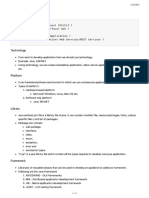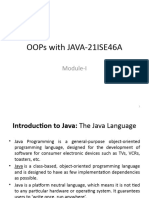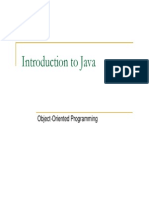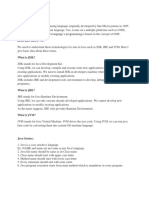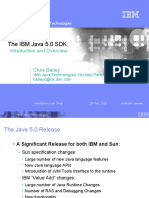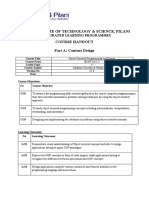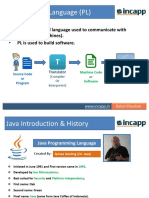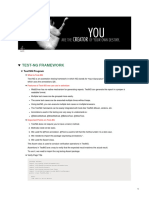0% found this document useful (0 votes)
18 views42 pagesIntroduction To JAVA Basics
The document provides an introduction to Java, covering its history, characteristics, and differences from C++. It outlines the syllabus for a Core Java course, detailing various units such as packages, exception handling, constructors, and multithreading. Additionally, it includes information on Java installation, JDK tools, and Java bytecode.
Uploaded by
asmalubnashaikhCopyright
© © All Rights Reserved
We take content rights seriously. If you suspect this is your content, claim it here.
Available Formats
Download as PPTX, PDF, TXT or read online on Scribd
0% found this document useful (0 votes)
18 views42 pagesIntroduction To JAVA Basics
The document provides an introduction to Java, covering its history, characteristics, and differences from C++. It outlines the syllabus for a Core Java course, detailing various units such as packages, exception handling, constructors, and multithreading. Additionally, it includes information on Java installation, JDK tools, and Java bytecode.
Uploaded by
asmalubnashaikhCopyright
© © All Rights Reserved
We take content rights seriously. If you suspect this is your content, claim it here.
Available Formats
Download as PPTX, PDF, TXT or read online on Scribd
/ 42


























